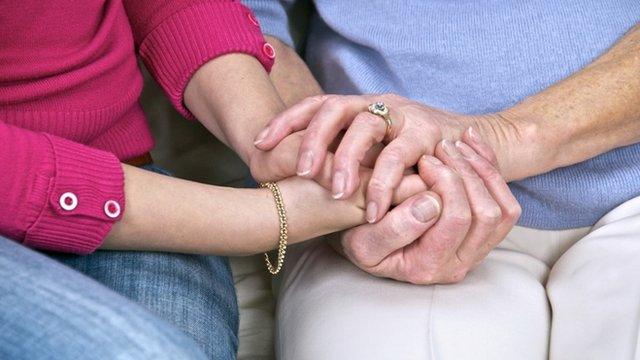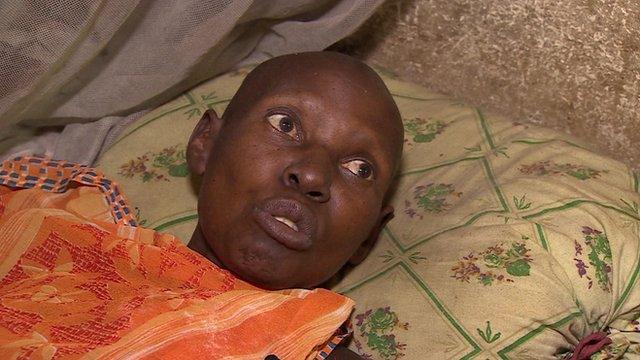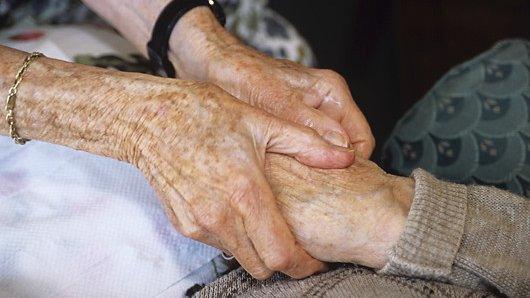Minority groups missing out on palliative care, charity says
- Published
GPs were often reluctant to suggest hospices to members of ethnic minority groups
Ethnic minority communities in Wales may not be getting the end-of-life care they need, a cancer charity says.
Marie Curie Cancer Care said language barriers and concerns over worship and dietary needs could be a barrier to services for patients in Cardiff.
The report also found GPs were often reluctant to suggest hospices to members of ethnic minority groups.
The charity says it is trying to address the issue to ensure equal access for all to services.
Over 15% of Cardiff's population is made up of Black, Asian and Minority Ethnic communities (Bame).
Shameem Nawaz, a community development officer at Marie Curie, which provides care to people with terminal illnesses in their homes or in hospices, said its research showed there was a general lack of knowledge of palliative care services among Bame groups.
She said there was also a common misconception that people from other cultures care for sick and elderly relatives at home instead of seeking outside help.
'Economic pressures'
"Things have changed. People don't always live in the same city - or even the same country - as their close relatives," she said.
"People are also facing the same economic pressures as the majority communities in Wales."
"We've been trying to overcome the barriers identified to enable equal access to our services and offer patient support," she added.
To tackle the problem, the charity has set up a communal prayer room for people of all faiths at its hospice in Penarth, in the Vale of Glamorgan.
It also has its own chef to cater for the patients' individual dietary needs.
The Cardiff South and Penarth assembly member, Vaughan Gething, said despite the widespread acceptance and celebration of the diversity of Wales, barriers to accessing end-of-life care to those in Bame communities remain.
"It should come as no surprise that these same challenges need to be addressed to ensure that high-quality, end-of-life care services are available for all of our communities," he said.
- Published18 July 2014

- Published3 June 2014

- Published23 July 2014
